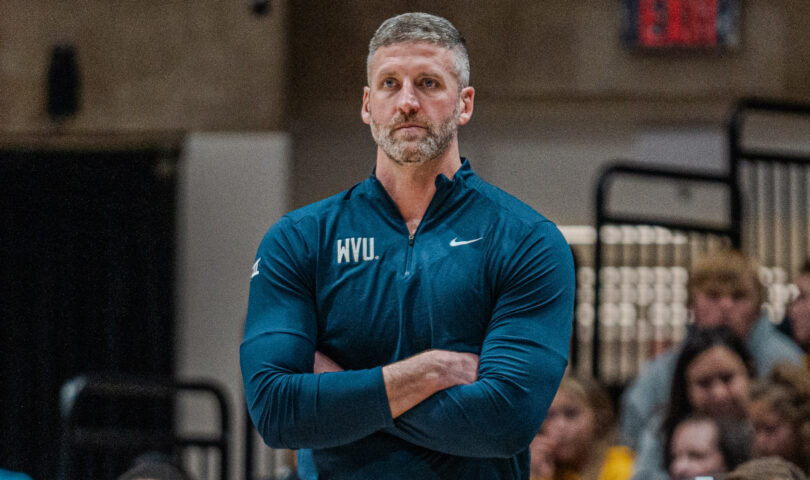MORGANTOWN — Even after a 14-day temporary restraining order (TRO) placed by a federal judge against the NCAA in enforcing its transfer rules, there is no clear-cut evidence that WVU will play senior guard RaeQuan Battle on Saturday against UMass.
After taking a hit in a Wheeling federal court on Wednesday, the NCAA fired back on Thursday, providing some clarity to its member schools on how it would handle eligibility issues after the restraining order ends.
In the guidance sent to schools, the NCAA states it will count any games played by previously ineligible athletes during the 14-day window provided by the TRO as part of their “season of completion.”
Meaning athletes who choose to play during the TRO will be using a season of eligibility, even though it may only mean they play in a few games.
Which sets up the gamble facing Battle, as well as teammate Noah Farrakhan, who are both sitting out this season because of NCAA two-time transfer rules.
“It’s mainly the eligibility,” WVU head coach Josh Eilert said during a Zoom call Thursday. “In 14 days, we play three games. If the decision is overturned and (Battle and Farrakhan) play during this course of the season and they lose that year of eligibility, that doesn’t seem like we made the right decision by the student-athlete.”
A WVU spokesperson said the school was not planning an immediate statement toward the NCAA’s guidance or announcing Battle’s and Farrakhan’s status on Thursday.
The TRO ends on Dec. 27, when a full hearing will be heard in Wheeling on an injunction, which will only add to this story.
It’s possible the restraining order gets extended — possibly to the end of the 2023-24 school year — which would essentially make the NCAA powerless from keeping schools from playing athletes who are currently sitting out this season.
Or the court could rule in favor of the NCAA, and any ineligible athlete who plays during those 14 days could lose an entire season of eligibility.
In Battle’s situation, he has just one season of eligibility remaining, meaning he could possibly lose it all by playing during the TRO.
Ultimately, the decision to play or to continue to sit out may come down to Battle and his family.
“Those conversations will have to be had with those student-athletes and their families and our department to figure out what’s best for them and for us, as a whole,” Eilert said.
Battle could choose to play during the TRO, which accounts for three games, and then hope for a favorable ruling on Dec. 27 that would allow him to continue playing.
Or the decision could be made to continue to sit out and see what happens on Dec. 27.
“I want all the facts laid out for everybody involved before making those decisions,” Eilert continued. “I think that’s the right way to approach those things.”
The NCAA also said in its guidance it would not penalize any school for playing a previously ineligible athlete during the TRO, providing the athlete is academically eligible to participate.
“The reports are the institutions are protected during the 14-day window, but the bigger question, to me, are the eligibility concerns and whether that would burn a year by playing in that 14-day window,” Eilert said.
Battle and Farrakhan had to sit out this season, because they have yet to earn a college degree and had already used their one free transfer.
The NCAA can provide a waiver to that rule, based on certain exceptions.
WVU applied for a waiver for Battle based on the exception for mental health issues, but was denied on Oct.23. The school then appealed that decision and was denied again on Nov. 21.
Battle’s case has now moved to a “reconsideration stage,” in which WVU is providing new information for the NCAA to consider for a waiver.
Battle has also filed a separate lawsuit against the NCAA in which he alleges the organization has limited his Name, Image and Likeness earnings by forcing him to sit out this season.




